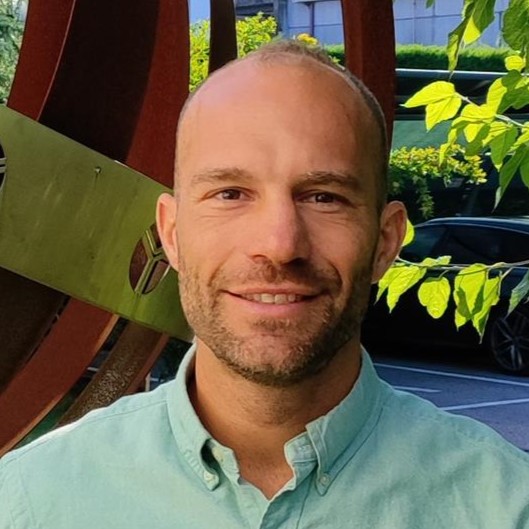Speaker Interview: Alessandro Chiarion, Tecnofer
Please share some background on yourself and your company
As the Sales Manager of Tecnofer Ecoimpianti for the North American market, I am passionate about technology and sustainability. I am dedicated to helping our clients choose the most efficient and high-performing plastic washing lines that meet their specific needs.
Since 1976, Tecnofer has been a leader in the recycling sector, specializing in the design and construction of highly automated machines and systems for enhancing the value of plastic and waste. With a strong focus on plastic recycling, we develop comprehensive
lines for various types of plastic waste, including LDPE-LLDPE, PP-HDPE, and PET.
Our high level of customization allows us to retrofit existing washing lines to improve plant performance and enhance the quality of the final product. Tecnofer’s commitment to innovation and customization ensures that our clients receive tailored solutions that maximize efficiency and sustainability in their recycling processes.
How big of a problem is residual humidity in the extrusion process? What effect does it have and what can be done to combat it?
Unlike rigid plastics, where the primary challenge lies in achieving a high cleaning grade, a significant concern in washing plastic film is managing residual humidity. Water trapped between the extremely thin layers of plastic film becomes a substantial
obstacle during the extrusion phase. Even a small percentage of residual moisture can reduce extruder efficiency, lower the throughput of processed material, and significantly increase electrical power consumption.
To address this challenge, it is essential to select the most effective drying system tailored to the specific application. Customizing the solution based on the type of material and the unique needs of the customer ensures optimal performance and efficiency.
Reducing electrical power usage not only makes the process more environmentally friendly but also more cost-effective. Ensuring minimal residual humidity guarantees optimal extruder performance, leading to a more efficient and sustainable recycling operation.
Besides residual humidity, what other factors influence extruder efficiency?
Another critical factor that can compromise extruder efficiency is the presence of residual impurities in the plastic. Excessive impurities remaining after the washing process can frequently clog the extruder’s filtering section, leading to increased
maintenance costs and downtime.
This is why it is crucial to have complete control and flexibility over the washing process, ensuring the highest cleaning standards while minimizing the production of fines throughout the washing stages. Tecnofer machines are designed to provide maximum flexibility, allowing clients to adjust various settings throughout the year. This adaptability ensures the process remains optimized for different types of plastic, a material that continually evolves.
What other recycling machinery innovations do you think are set to change the industry over the next few years?
Plastic recycling is evolving, with new targets challenging manufacturers to improve results while prioritizing energy and water conservation. Two key factors that can significantly impact recycling outcomes are the selection of better materials and more thorough cleaning processes.
Recyclers are constantly under pressure to enhance the quality of their final products. To achieve this, they often need to use state-of-the-art sorting plants and advanced cleaning methods, such as hot washing systems. In recent years, Tecnofer has enhanced its patented hot washing systems, increasing their cleaning effectiveness and developing solutions focused on improving sustainability and efficiency. Additionally, thanks to a strong partnership with a European partner, Tecnofer can offer the most advanced sorting technology available on the market.
Alessandro Chiarion will be speaking on Day 1 at the Plastics Recycling World Expo Theater.

